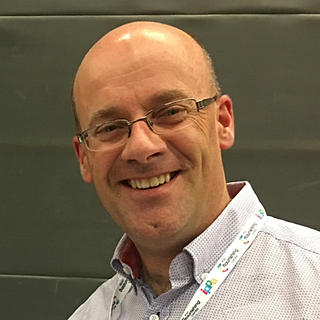Specialise or generalise: What should you do?
- Derek Tate
- Nov 6, 2020
- 3 min read
Updated: Jun 25, 2023
This topic appears to be very 'hot' at the moment and has been covered in a number of relatively recent articles, books and Ted Talks supporting one side of the argument or the other! In chapter 1 of my new book, Learn, Enjoy, Flow & Grow it is a subject that I discuss alongside a number of other areas which I believe are wrapped up in this debate. These areas include; the psychology of interest, knowing your strengths, not being afraid to fail and following your bliss all of which impact your ability to 'Find your interests'.
Having read quite widely on the subject I intended to write a blog about specialising or generalising some time ago but writing my book took centre stage and my thoughts and ideas on this topic fitted in very well with part one of the book: Learn and became quite foundational to the whole coaching method of Learn, Enjoy, Flow & Grow (LEFG). Indeed, understanding more about finding your interests (in any domain or area of life) and how to pursue them e.g., specialise or generalise etc. would seem crucial to everything else that follows!
One of the points that I stress in my book is that concepts and ideas that are presented by various authors are often either taken out of context, or one small bit of what someone has said is latched onto and then reported inaccurately. A classic example of this is the so called 10,000 hour rule referring to the amount of practice required in order to reach mastery in any domain and therefore an argument often made for specialising early!
Here is a short snippet from chapter 1 to give you an idea of what is covered;
"There appears to be different schools of thought when it comes to acquiring mastery in any given domain. Essentially the debate moves between whether it is better to specialise and focus your time and energies on one thing? Or whether it is better to sample many different activities and take time to decide what really interests you?" (Tate, 2020)
As with many of the chapters in my book there is a mixture of presenting theories, research and differing points of view and supporting these with some of my own personal experiences as a learner and coach over many years. I have also incorporated some thoughts and observations from other professionals, friends and colleagues who are not only very inspirational people but have achieved great things in their own domain. Knowing a little of their 'stories' really brings the book alive and in chapter 1, Phil Smith, Emma Carrick-Anderson and their children the Carrick-Smith boys add some real value to the chapter. Their story is very interesting and Phil's quote brings a good deal of clarity to the specialise or generalise debate.
So, what is my conclusion to this argument about whether to specialise early in order to achieve mastery, or to generalise and develop a whole range of interests? Of course you need to read the book yourself in order to find out but what I would say, at this point, is that deriving enjoyment from whatever activity, or activities, you do would seem to be one of the most important things, hence having intrinsic motivation and doing something for its own sake (autotelism - a characteristic of flow) is preferable. However, it is not always that simple as the pressures of life and 'external' factors (parents, coaches, career advancement etc.) can sometimes make this very difficult, but in the words of Joseph Campbell, you should "follow your bliss" rather than somebody else's goals and expectations for you.
My book is now available in paperback and ebook formats from Amazon stores worldwide. To find out more and for buying options click here.
About the Author
Derek Tate is an author, coach and teacher and runs Derek Tate Coaching. His mission is to help others to flourish and get more out of life through better mental, emotional, and physical health. He offers mental skills coaching, alpine ski coaching, online courses and workshops and writes self help/psychology books.







Comments